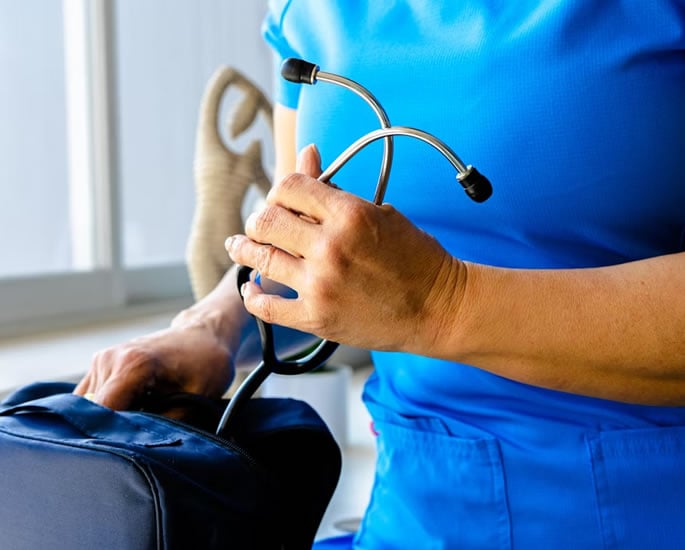“AI has the potential to transform healthcare"
The NHS is set to become a global leader in AI-powered healthcare, thanks to a new National Commission aimed at speeding up safe access to artificial intelligence.
Technology is already changing how doctors work and how patients are treated, but unclear rules have slowed some innovations.
AI assistants, diagnostic tools, and remote monitoring systems can improve care, reduce mistakes, and give clinicians more time with patients.
The National Commission will remove these obstacles and ensure the UK combines the latest technology with strong patient safety standards.
This could make Britain the first country to fully benefit from advanced healthcare AI safely and quickly.
Faster Access to AI for Doctors and Patients

The UK National Commission on the Regulation of AI in Healthcare will advise the Medicines and Healthcare products Regulatory Agency (MHRA) on rewriting the rules for AI in healthcare, set to be published in 2026.
Experts from Google, Microsoft, NHS clinicians, researchers, and patient groups will guide regulators on how to safely introduce new AI tools.
The Commission will focus first on technologies currently held back, like AI assistants for doctors.
Early tests of Ambient Voice Technology show that reducing paperwork lets doctors see more patients in A&E and spend more time on care.
Other AI tools under review include systems for radiology, pathology, and remote monitoring, which alert staff to early signs of patient deterioration while allowing people to live independently at home.
Science and Technology Secretary Liz Kendall said:
“AI has incredible potential to help doctors spot and treat diseases earlier.
“But we need experts to come together so patients can benefit from these opportunities quickly and safely.
“This Commission will ensure the UK leads the way in making these game-changing technologies available in the safest possible way, helping more of us to lead healthy, longer lives and supporting our NHS.”
Health Innovation Minister Zubir Ahmed added: “AI has the potential to transform healthcare, but only if we get the regulation right.
“This Commission will ensure we harness the power of artificial intelligence to save lives and improve care, whilst maintaining the highest safety standards our patients deserve.
“By bringing together the brightest minds in healthcare, technology and patient safety, our Plan for Change is positioning the UK as the global leader in AI-enabled healthcare.
“This isn’t just about innovation for innovation’s sake; it’s about building an NHS that works better for patients, catches diseases earlier, and gives our incredible NHS staff the tools they need to provide world-class care.”
Creating Safe and Responsible AI Rules

The Commission, led by Professor Alastair Denniston and deputy chaired by Patient Safety Commissioner Professor Henrietta Hughes, will guide the MHRA on using AI safely and effectively in everyday healthcare.
Lawrence Tallon, Chief Executive of the MHRA, said:
“We want regulation of AI in healthcare to move at the pace of innovation.
“AI has enormous potential to transform patient outcomes, improving quality, access and equity of care while driving efficiency.
“It is crucial that AI regulation maintains patient safety and public confidence.
“By bringing together leading voices in healthcare, technology, and patient safety, this Commission will help establish the UK as a global leader in responsible AI healthcare regulation.
“The MHRA will act on the recommendations of the Commission to support the NHS’s digital transformation and advance the UK’s ambition to become a global hub for health tech investment.”
Professor Denniston said: “I’m honoured to be appointed Chair of the UK National Commission on the Regulation of AI in Healthcare.
“The safe and effective use of AI in healthcare is one of the defining challenges and opportunities of our time.”
“This Commission marks a vital step in ensuring the UK leads the way in responsible innovation, and in accelerating the availability of AI technologies that can support better health for everyone.
“By bringing together diverse expertise, we can build a regulatory framework for AI that is trusted by the public and health professionals, and delivers real benefits for patients.”
Professor Hughes added: “It’s a great honour to be appointed as Commission Deputy Chair.
“AI in healthcare has the potential to bring huge benefits for patients, but it must be carefully regulated. In developing the use of AI in healthcare we must listen to patients’ views to ensure that its use is safe and fair.”
Boosting Innovation and Investment in the UK

The Commission will also encourage technology companies to develop AI in the UK, supporting the government’s Plan for Change and the NHS 10-Year Health Plan. Dame Jennifer Dixon, CEO of the Health Foundation, said:
“The Health Foundation is delighted to be collaborating on the new Commission for the Regulation of AI in Healthcare.
“AI is advancing rapidly in healthcare, with growing evidence of its potential to enhance care delivery, improve outcomes and productivity, and enrich patient experience.
“While the NHS 10-Year Plan set a bold vision for AI, regulation must keep pace with innovation and facilitate effective use and spread.
“A robust and ethical framework is essential to maintain momentum, build trust in the technology among staff and patients and ensure the UK remains a leader in responsible AI in healthcare.”
Peter Ellingworth, Chief Executive of ABHI, explained:
“Harnessing the power of AI and data-driven HealthTech will be vital to improving outcomes, reducing pressures on staff, and creating value across the NHS.
“By working together to accelerate safe adoption of AI in healthcare, we can ensure patients, communities and the wider economy all benefit from these innovations.
“I am therefore very pleased to be contributing to the important work of the Commission, to help ensure industry plays an active role in shaping supportive regulation that enables safe, effective and timely access to new technologies.”
AI is already being used in the NHS to analyse stroke brain scans and assist in diagnosing lung cancer. Research shows hospitals using AI-supported diagnostics have seen a 42% drop in mistakes.
The Commission’s work will make sure these tools can be safely expanded, helping the NHS lead globally while keeping patients safe and building public trust.
The National Commission is a major step in making the NHS the world’s most AI-enabled healthcare system.
By giving clear rules, supporting safe use, and attracting investment, the UK is preparing a smarter, more efficient, and patient-focused NHS.
AI is the next stage in transforming healthcare, and Britain is positioning itself to lead the way safely and responsibly.






























































